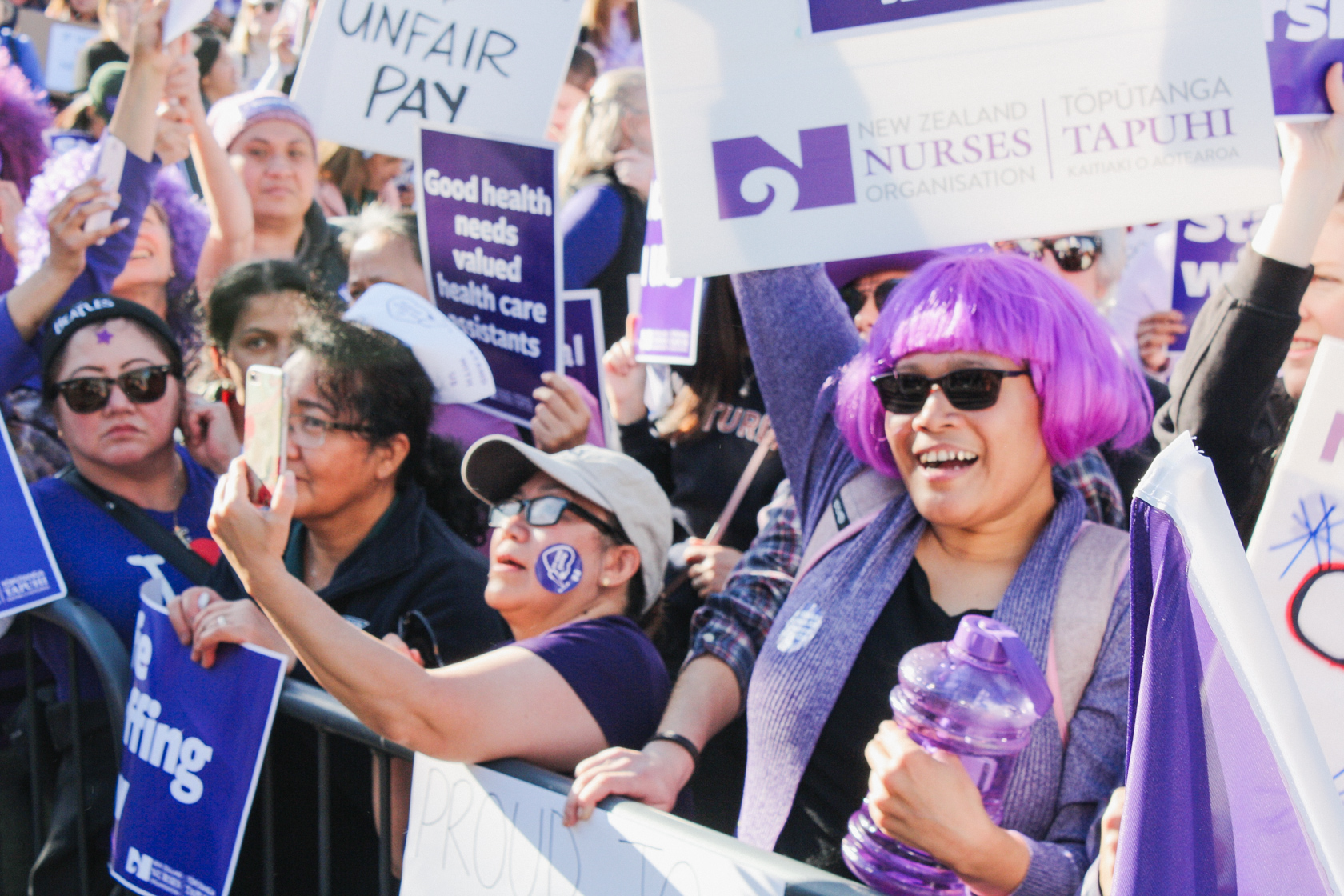Just as striking NZNO members, a purple wave, prepared to hear from politicians, here was a reminder of just how important nurses’ work was – a rescue helicopter flying overhead, on its way to Wellington Hospital.
Lives were being saved in the air – and on the ground.
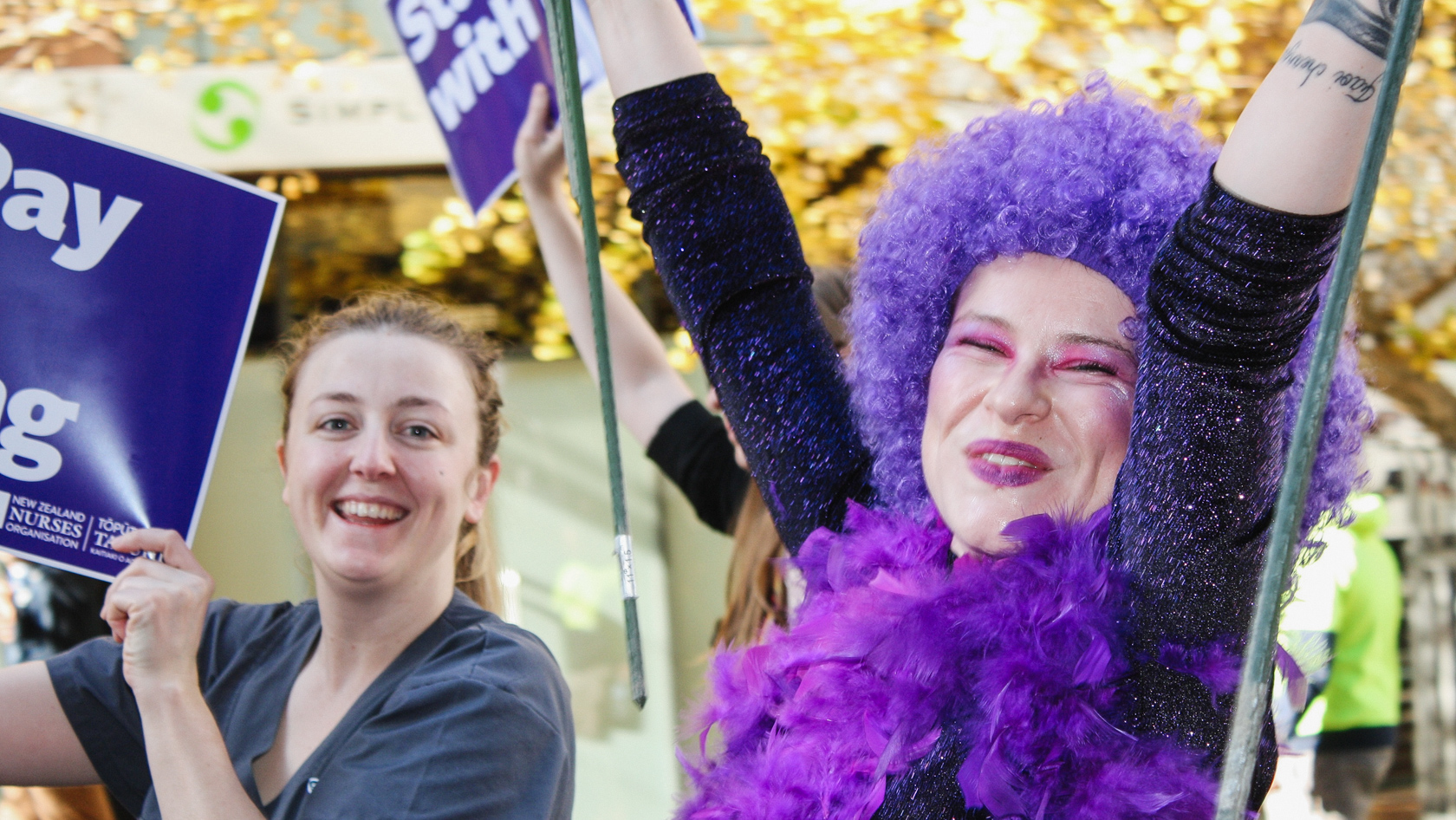
The NZNO DHB members’ strike launched around Aotearoa on Wednesday, with thousands of nurses going out for better pay, conditions, and safety for patients.
In Wellington, hundreds gathered at Civic Square, before marching to Parliament to hear from MPs – including Health Minister Andrew Little.
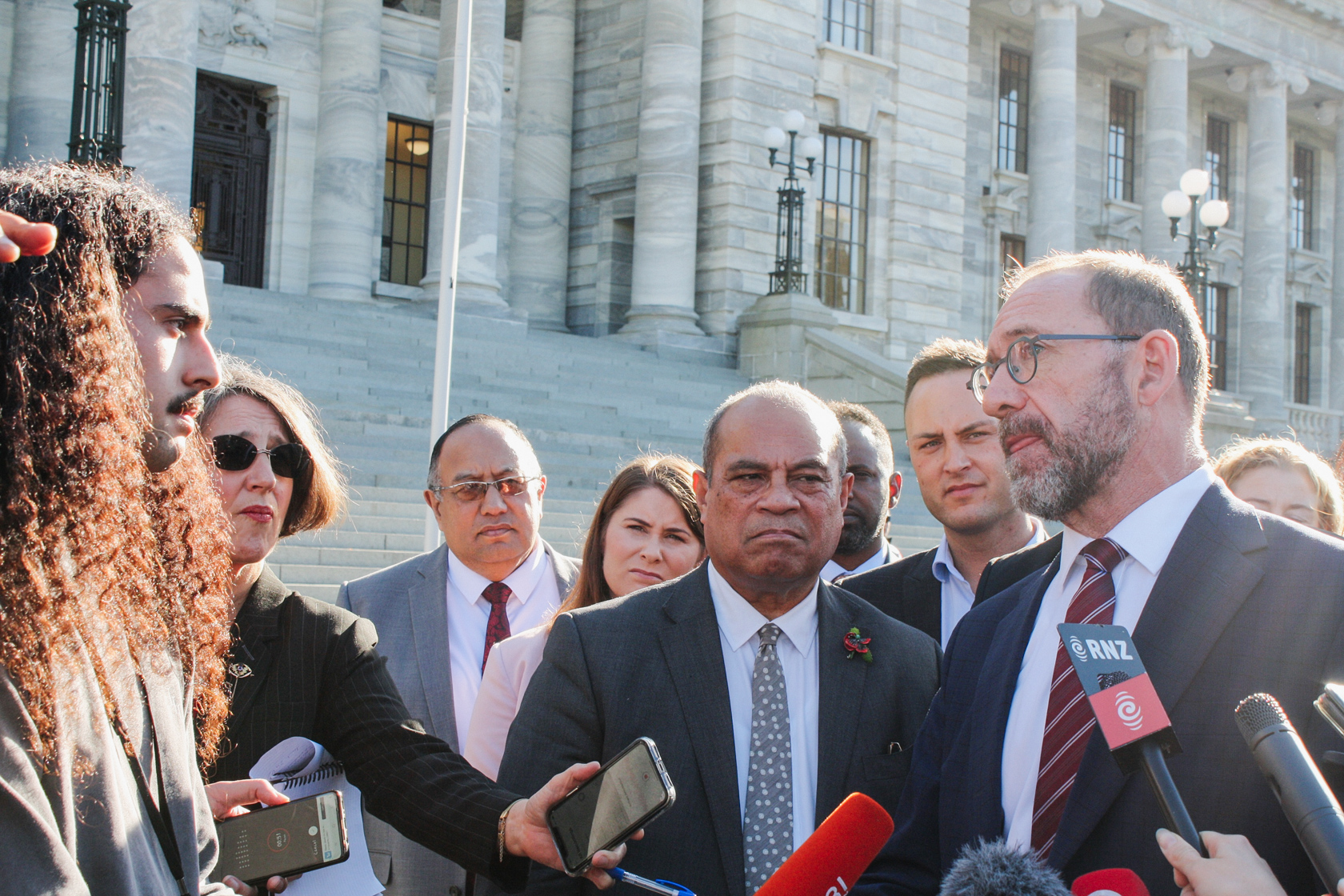
Leading off the march were NZNO Kaiwhakahaere Kerri Nuku and acting president, and vice president, Tracey Morgan.
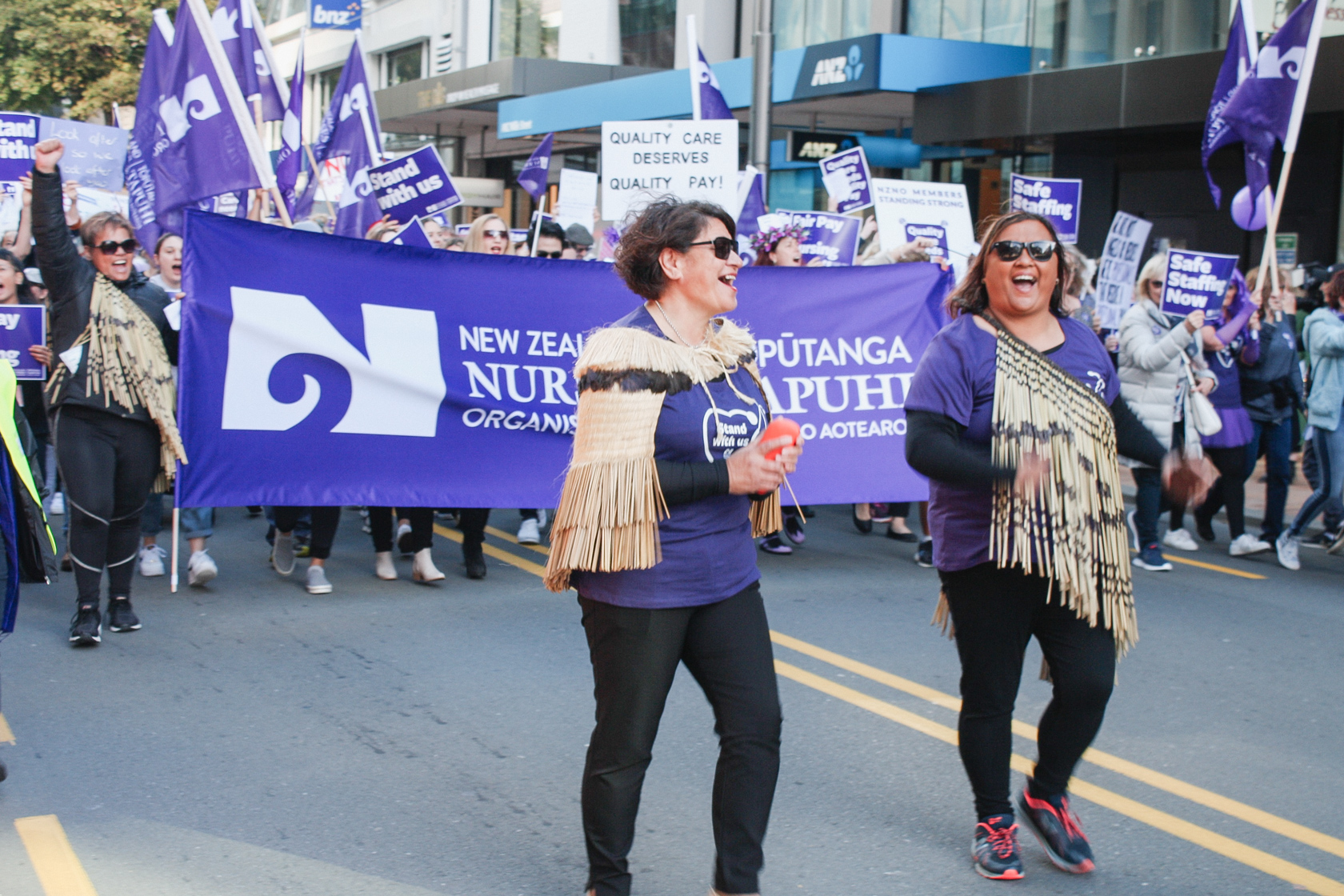
Nuku, walking at the head of a line snaking back hundreds of metres along Lambton Quay, said being part of the action was fantastic.
She said she had heard some of the comments made by the government over the past days, which aimed to undermine the NZNO cause.
“It also feels like it undermines the significance and of the stress and pressures that everyday nurses face in the healthcare system.”
Greeted with toots, waves and claps, the nurses strode through Wellington city streets.
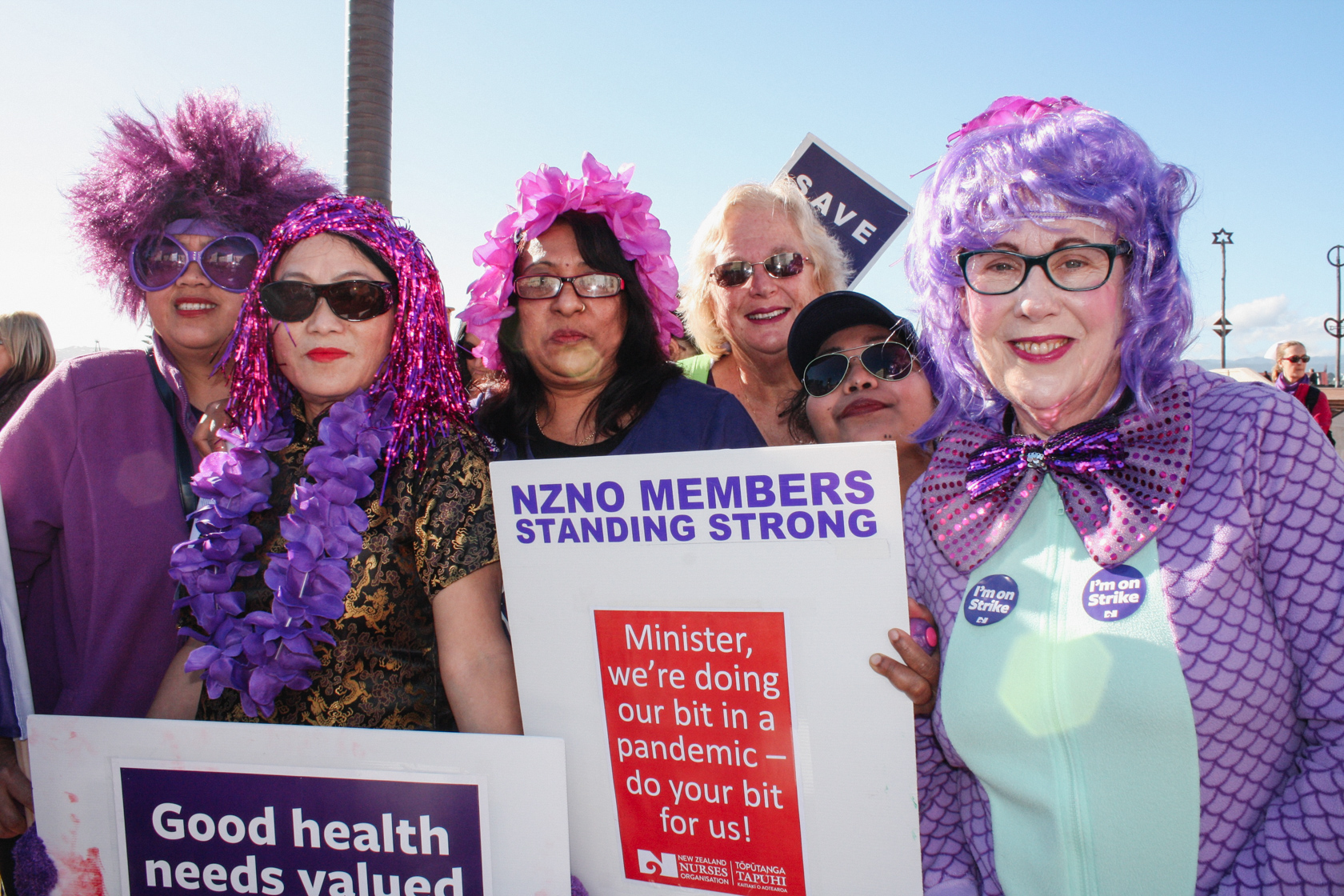
“We love you” shouted one passer-by, while another complained into her phone that “the nurses are quite loud”.
Indeed they were – especially when Little tried to speak to them at Parliament, but was drowned out with angry chants of “fair pay, now”.
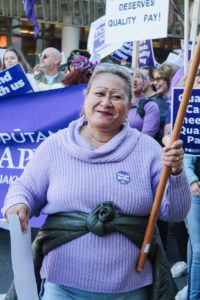 Afterwards, Little said he didn’t take it personally and understood nurses were “expressing their frustration, understandably”. It was important to front up, he said.
Afterwards, Little said he didn’t take it personally and understood nurses were “expressing their frustration, understandably”. It was important to front up, he said.
He said he was committed to a pay rise and safer staffing for nurses, but made no new promises, pointing only to the Fair Pay negotiations which he suggested would conclude “in a matter of months”.
The health reforms, too, he said would make a difference to conditions in the long-term.
“We’re doing the best we can. I hear your message but it will take time,” he said. “I will continue to do what I can.”
Little said it was “not possible” to meet the 17 per cent pay rise initially requested. This figure, a starting negotiation position, was the one Prime Minister Jacinda Ardern publicly revealed the day before the strike.
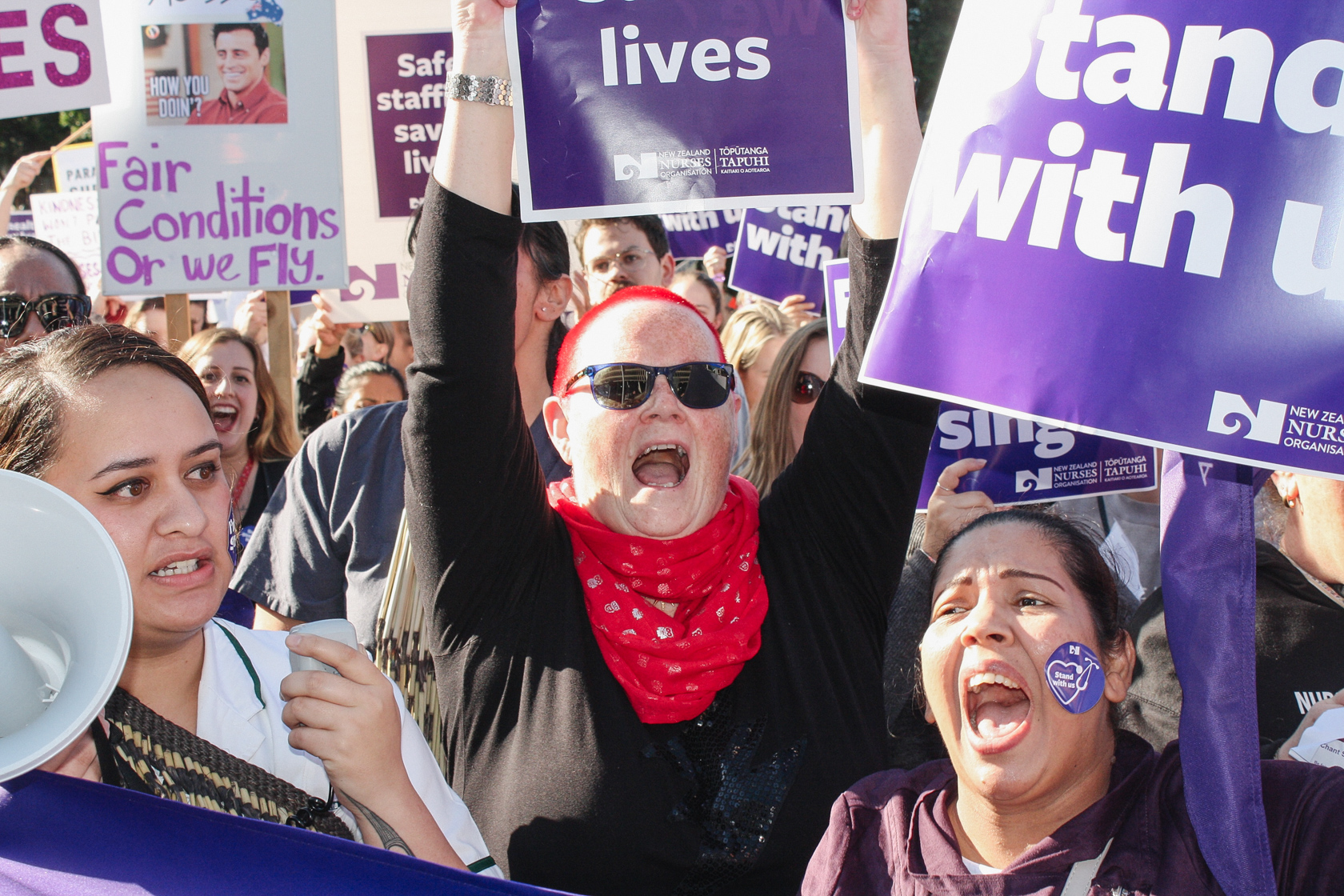
Meanwhile, acting president Morgan kick-started the event with a rousing speech.
She said it was “not ok” that nurses had to strike.
“It’s not ok that we don’t have the resources we need. We are strong, we are bold, we are united…”
Leaders from the Council of Trade Unions (CTU), Association of Salaried Medical Specialists, Public Service Association also spoke.

CTU president Richard Wagstaff said unions stood with nurses, “so they get the respect they deserve… so none of you have second thoughts about making this your career”.
“How can you meet your own standards when there isn’t enough of you?”
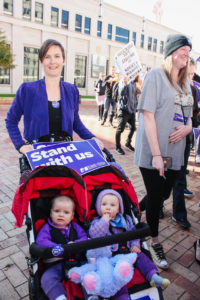
Green Party MP Jan Logie said her mother was a nurse and acknowledged the work of nurses over the past year. “Your fight is not a selfish fight. You are standing up for our community, you are standing up for all of us”.
National’s Dr Shane Reti said after decades of clinical experience he knew the value of nurses. Nurses were necessary for a successful COVID-19 vaccination rollout, he said.
Reti said if he had the choice of spending $486 million on the health reform transition (as budgeted by the government) or nurses, “I would rather back you”.
But it was the DHB nurses who were backing themselves, in a strike that came after protracted negotiations, a challenging year dealing with COVID-19, and a battle for fair treatment.

Wellington nurse Mel Anderson said she was striking for better pay and conditions. She was “disappointed” in the latest offer. “It felt like they were trying to bribe us with money that was already ours.”
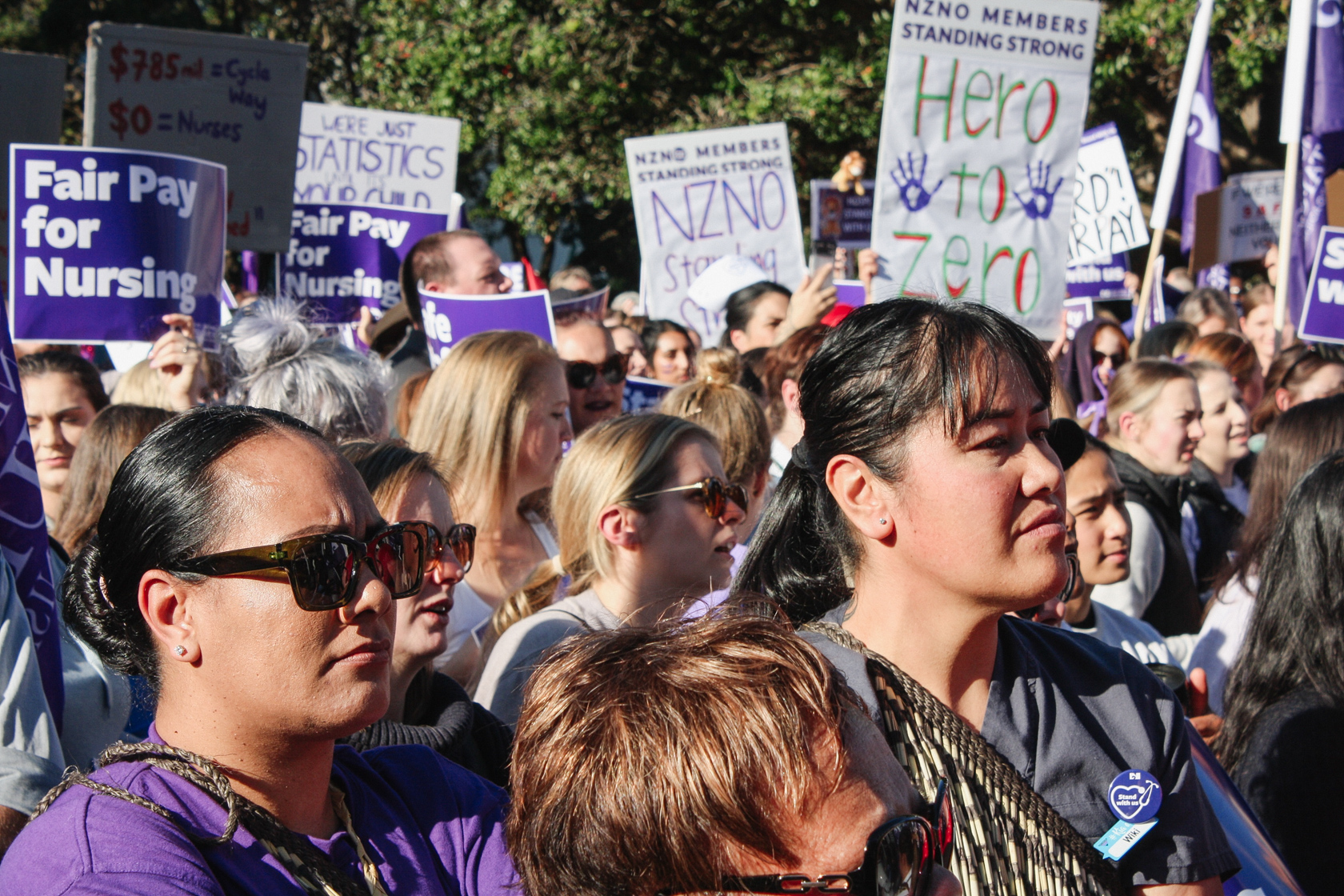
Kenepuru health workers who worked with older persons said they were constantly understaffed, which made them “worn out, tired, exhausted…” “We are not able to give 100 per cent care to our patients when we are short-staffed.”
